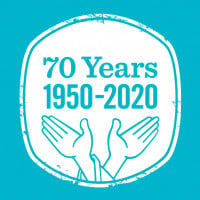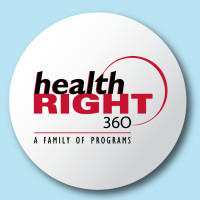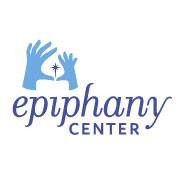The Lotus Collaborative Eating Disorder Recovery
Drug Rehab Center in San Francisco, California
The Lotus Collaborative Eating Disorder Recovery in San Francisco, California, is a specialized treatment center offering a wide range of addiction and mental health services, including therapy, experiential therapy, trauma therapy, family therapy, and creative arts therapy, all tailored to each individual's needs and focusing on a healthier path towards recovery.
About This San Francisco, CA Facility
Located in San Francisco, The Lotus Collaborative Eating Disorder Recovery is an addiction and mental health treatment center focused on helping individuals and families find a healthier path. This center specializes in treating a wide range of mental health-related issues, such as Drug Addiction, Alcoholism, Opioid Addiction, Dual Diagnosis, Eating Disorder, and issues related to Mental Health.
The Lotus Collaborative Eating Disorder Recovery offers a variety of specialized treatments and methods to provide focused, personalized care for each individual’s needs. This includes Dialectical Behavioral Therapy (DBT), Eating Disorder Treatment, Experiential Therapy, Eye Movement Desensitization and Reprocessing (EMDR), Family Therapy, Feminist, Internal Family Systems (IFS), Interpersonal, Mindfulness-Based (MBCT), Motivational Interviewing, Somatic, Trauma Therapy, Dual-Diagnosis, Intensive Outpatient (IOP), Life Skills, Residential Long Term (>30 Days), and Individual Therapy. In addition, they also offer Aftercare and Creative Arts Therapy. Treatment plans can range from Dual-Diagnosis to Aftercare Support, and all treatment plans are customized to the individual’s needs.
Genders
Ages
Modality
Additional
Conditions and Issues Treated
Opioid addiction treatment facilities in California, like The Lotus Collaborative Eating Disorder Recovery cover both illegal and prescription opioids abuse. Most plans include detoxification and subsequent medications to ease the process. Behavioral therapies and counseling are also necessary to resolve the root cause of addiction.
When someone in California struggles with both addiction and mental or emotional illness, this is considered a dual diagnosis. Dual diagnosis treatment can include emotional trauma, bipolar disorder, schizophrenia, depression. Getting treatment for these issues must occur at the same time to treat either of them effectively.
Levels of Care Offered
This center offers a variety of custom treatment tailored to individual recovery. Currently available are Aftercare Support, Dual-Diagnosis, Inpatient, Intensive Outpatient, with additional therapies available as listed below.
Inpatient rehabilitation aims to treat severe addictions and co-occurring disorders. Depending on individual requirements, the duration of the stay at The Lotus Collaborative Eating Disorder Recovery ranges from four weeks to six months. California inpatient recovery guarantees that the patient resides in an environment free of drugs.
An intensive outpatient treatment program is set up for those struggling with an addiction to begin the recovery process. Patients come to San Francisco, CA to The Lotus Collaborative Eating Disorder Recovery for therapy, support, programs, and medical supervision. Intensive outpatient treatment is often very tightly scheduled and heavily structured.
Treatment for substance abuse does not cease after an individual successfully completes a detox or rehabilitation program. A vital follow-up treatment service is aftercare support provided to individuals at The Lotus Collaborative Eating Disorder Recovery in California after they attain initial sobriety.
Aftercare support often takes the following forms: 12-Step Programs, Outpatient Treatment Programs, and Support Groups. The most effective aftercare programs are tailored to meet an individual’s specific needs and circumstances.
The Lotus Collaborative Eating Disorder Recovery‘s Therapies & Programs
Treatment programs include individual therapy for the greatest chances of success. Customized individual therapy is counseling involving you and your The Lotus Collaborative Eating Disorder Recovery counselor. Individual therapy leads to greater peace and understanding about your triggers for addiction.
When family members are more proactive and involved in the treatment procedure, it encourages the patient to advance his or her progress. Moreover, it shouldn’t be ignored that genetics play a role when it comes to addiction, so it’s better to approach the problem as a unit. Also, with proper education, family members can help an individual avoid addiction triggers and guide him or her in making lifestyle changes necessary for his or her sobriety.
It has been said that unhealed trauma is the root of most addictions. Trauma therapy is a way of addressing trauma while in a safe situation in order to heal. Healing past traumas and introducing coping strategies are strong foundations for sustained recovery from addiction. This may involve individual or group counseling or both, in a San Francisco, CA facility. Other forms of therapy have been proven to assist in healing past traumas.
Dialectical Behavior Therapy (DBT) helps those who attend The Lotus Collaborative Eating Disorder Recovery understand how their feelings, beliefs, and thoughts affect their behaviors. DBT is particularly useful for people with self-harming behaviors, as well as those with substance abuse disorders. DBT teaches people how to tolerate distress, regulate their emotions, and how to become mindful.
Eye Movement Desensitization and Reprocessing (EMDR) is a therapeutic method used to treat emotional trauma. In an EMDR session, a The Lotus Collaborative Eating Disorder Recovery therapist provides a stimulus for the client, such as hand-tapping or moving a visual stimulus that the client tracks while recounting a traumatizing event. EMDR is notably effective in treating PTSD.
In the midst of an addiction certain healthy habits and behaviors can be forgotten or discarded altogether. While in treatment you will learn life skills that will help you successfully maintain sobriety and rebuild your life in San Francisco, CA. Some examples of this are time management, social skills, nutrition, hygiene, stress management and taking care of yourself.
Patient Experience
Creative Arts
Many people opt for creative arts therapy at The Lotus Collaborative Eating Disorder Recovery because allowing out the creative side helps them process many situations. Creative arts therapy can include singing, playing instruments, writing, sculpting, fashion, painting, improv, building, and more. The creation process helps people think through puzzles to achieve and end result, which can then be applied to the process from addiction through recovery.
Experiential Therapy at The Lotus Collaborative Eating Disorder Recovery
Experential therapy is a unique type of therapy that deals with the subconscious mind. This treatment offered by The Lotus Collaborative Eating Disorder Recovery in San Francisco, CA encourages individuals to work out their issues with their inner self. Some of the most common examples of experiential therapy are equine therapy, music therapy, adventure therapy, and role playing.
Payment Options Accepted
For specific insurance or payment methods please contact us.
Is your insurance accepted?
Ask an expert, call (888) 674-0062
Additional Details
Specifics, location, and helpful extra information.
San Francisco, California 94123 Phone Number(415) 886-1753 Meta DetailsUpdated November 25, 2023
Staff Verified
Patient Reviews
There are no reviews yet. Be the first one to write one.
San Francisco, California Addiction Information
More than 3 million of California's citizens are addicted to illegal drugs. Almost 800,000 people use hard drugs, almost 5 million use marijuana, and another 2.1 million abuse alcohol every year. Other substance abuse issues such as binge drinking and teen drug use are also common. Many illegal drugs such as cocaine, heroin, methamphetamine, and marijuana are smuggled into the state from Mexico.
There were 1,93 overdose deaths in San Francisco in 2016. This is a significant increase from the 1,11 overdose deaths reported in 2015. 16% of San Francisco residents aged 12 and older reported using an illicit drug. Drug abuse and addiction cost San Francisco an estimated $5 billion yearly. San Francisco's drug treatment facilities are designed to meet each patient's unique needs, providing the support and resources necessary for a successful recovery.
Treatment in Nearby Cities
- Pomona, CA (368.2 mi.)
- Fremont, CA (29.5 mi.)
- Upland, CA (370.2 mi.)
- Cerritos, CA (366.1 mi.)
- Fair Oaks, CA (85.8 mi.)
Centers near The Lotus Collaborative Eating Disorder Recovery
The facility name, logo and brand are the property and registered trademarks of The Lotus Collaborative Eating Disorder Recovery, and are being used for identification and informational purposes only. Use of these names, logos and brands shall not imply endorsement. RehabNow.org is not affiliated with or sponsored by The Lotus Collaborative Eating Disorder Recovery.




